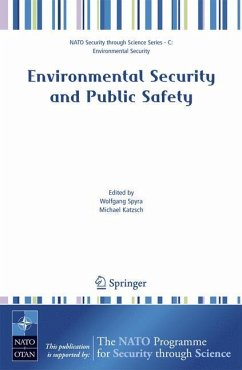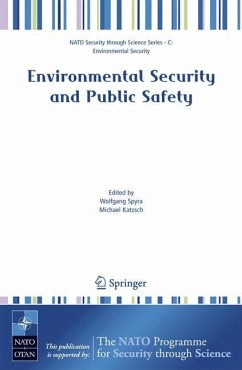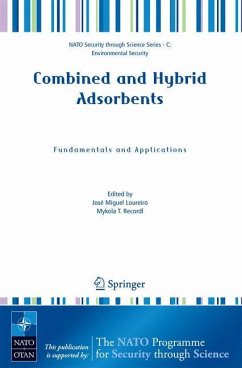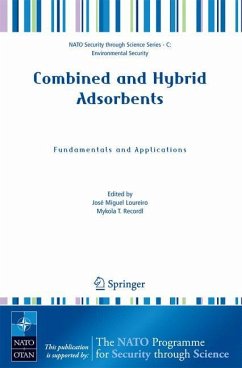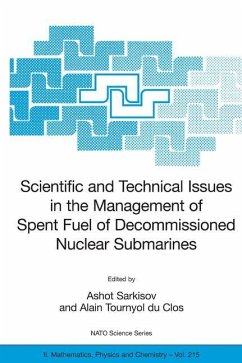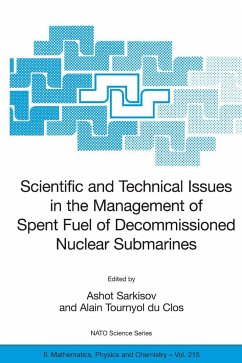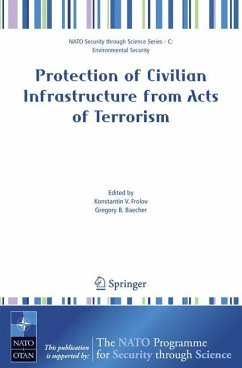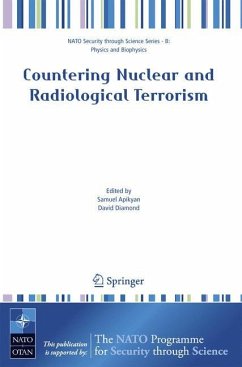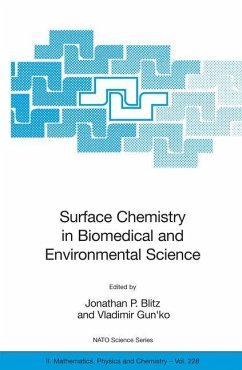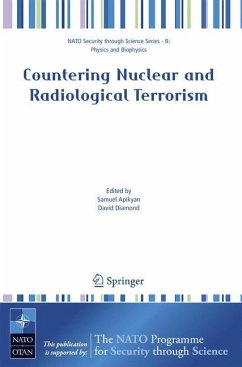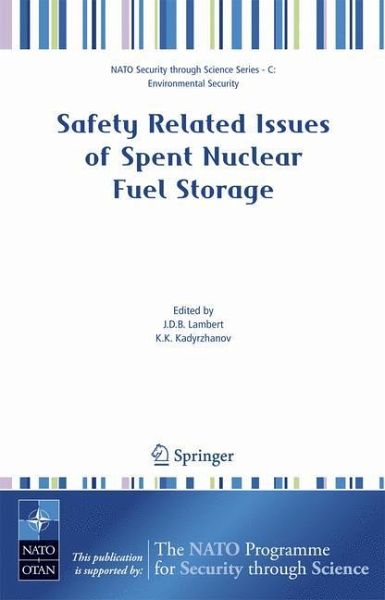
Safety Related Issues of Spent Nuclear Fuel Storage

PAYBACK Punkte
113 °P sammeln!
This book contains papers from a NATO-sponsored workshop in Almaty in September 2005, which discussed safety-related issues of storing spent nuclear fuel. Fifteen papers cover aluminum-clad fuel discharged from research reactors worldwide, while five papers examine stainless steel-clad fuel from fast reactors, and two Zircaloy-clad fuel from commercial light-water reactors.
At a NATO-sponsored workshop in Almaty in September 2005, specialists from the IAEA, Brazil, France, Kazakhstan, Poland, Russia, USA and Uzbekistan discussed safety-related issues of storing spent nuclear fuel. Fifteen papers dealt with aluminium-clad fuel discharged from research reactors worldwide, five papers were concerned with stainless steel-clad fuel from fast reactors, and two were devoted to Zircaloy-clad fuel from commercial light-water reactors.
Although most attention was focused on fuel behaviour in storage pools, many countries-through lack of space-are beginning to 'dry store' spent fuel in an inert atmosphere in shielded casks, and both topics were covered thoroughly at the workshop. Water quality and dryness of the spent fuel, respectively, are the critical factors in avoiding material degradation for the two storage modes. No burning safety-related issue emerged from the twenty-two papers presented; however, the lack of wet storage space at most reactors and concerns regarding possible sabotage remain as issues that need to be periodically addressed.
Although most attention was focused on fuel behaviour in storage pools, many countries-through lack of space-are beginning to 'dry store' spent fuel in an inert atmosphere in shielded casks, and both topics were covered thoroughly at the workshop. Water quality and dryness of the spent fuel, respectively, are the critical factors in avoiding material degradation for the two storage modes. No burning safety-related issue emerged from the twenty-two papers presented; however, the lack of wet storage space at most reactors and concerns regarding possible sabotage remain as issues that need to be periodically addressed.





